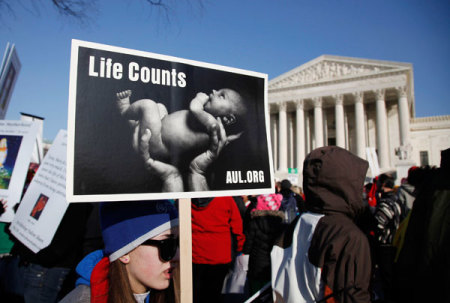South Carolina legislature passes heartbeat abortion ban; governor expected to sign

The South Carolina House voted overwhelmingly to support a ban on abortions once a fetal heartbeat is detected, which can be as early as six weeks into a pregnancy.
Known as the “South Carolina Fetal Heartbeat and Protection from Abortion Act,” the House passed the bill on Wednesday by a vote of 79-35, having already passed the state Senate.
The proposed legislation prohibits “an abortion on a pregnant woman before a physician determines … whether the human fetus the pregnant woman is carrying has a detectable fetal heartbeat.”
The Act includes exemptions for a pregnancy resulting from rape or incest, and when there is a life-threatening medical emergency for the mother.
Governor Henry McMaster has been a supporter of the legislation and is expected to sign it, making South Carolina the latest in a series of states to pass similar legislation.
Lisa Van Riper, president of the pro-life group South Carolina Citizens for Life, celebrated news of the bill’s passage in a statement released Wednesday.
“This is an historic day in South Carolina when the House and the Senate have re-established the heartbeat as the scientific, objective standard as the sign of life for the unborn,” stated Van Riper. “[The Act] protects not only the unborn but the medically fragile members of our human family.”
Groups like the South Carolina chapter of the American Civil Liberties Union denounced the legislation as a de facto ban on abortion, claiming that it is unconstitutional.
“This legislation places both medical providers and their patients at risk. It imposes criminal sanctions on abortion-providing doctors unless the procedure is intended to prevent death or serious risk of substantial and irreversible impairment of a major bodily function,” stated the ACLU back in January.
“This legislation is unconstitutional. The Fourteenth Amendment to the US Constitution guarantees a right to privacy, and the United States Supreme Court has repeatedly reaffirmed that this right includes a person’s ability to make decisions about their healthcare.”
Over the past couple of years, multiple states have passed laws that prohibit abortions in most circumstances if the heartbeat of an unborn baby is detected.
These measures have been successfully challenged in the courts, with judges concluding that they violate the right to abortion as laid out in the United States Supreme Court decision Roe v. Wade.
Last July, Tennessee Governor Bill Lee signed a similar measure into law, only to have U.S. District Court Judge William Campbell stop it from being enforced.
“The Act will immediately impact patients seeking abortions and imposes criminal sanctions on abortion providers. The time-sensitive nature of the procedure also weighs in favor of injunctive relief pending a preliminary injunction hearing,” ruled Campbell.





















